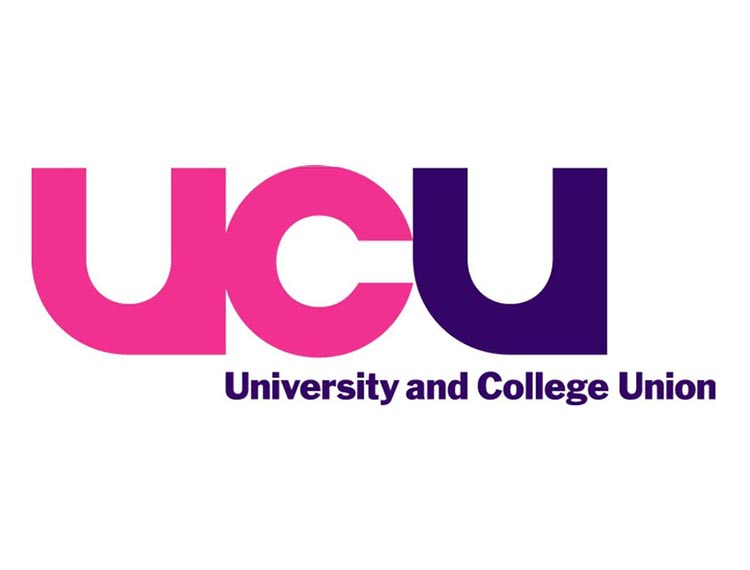71% of university staff say insecure contracts have damaged their mental health

Staff in UK universities working on insecure contracts say the lack of security is damaging their mental and physical health. A report released today (Thursday) says staff are holding down multiple jobs and struggling to pay the bills.
The report, from the University and College Union (UCU), says higher education staff are putting off long-term plans like starting a family and even struggling to pay day-to-day bills because of a lack of security and steady income.
Over two-thirds of respondents (71%) said they believed their mental health had been damaged by working on insecure contracts and more than two-fifths (43%) said it had impacted on their physical health.
The report warns that the widespread use of casual contracts is damaging the quality of research and the education students receive. It says staff are constantly faced with the choice of cutting corners with preparation, marking and feedback, or continuing to work unpaid. Respondents say they lack access to adequate teaching facilities or places where they can meet students to discuss their work.
The union said the report also rubbished claims by employers that flexible contracts were supported by staff. Almost all (97%) staff on a fixed-term contract said that they would rather be on a permanent contract and four-fifths (80%) of hourly-paid staff said they would sacrifice flexibility to secure a job with guaranteed hours.
Respondents say they are “living in limbo” unable to make any long-term plans and feel that universities exploit their desperation. One says they have a minimum of three jobs at any one time and never know when they will be paid. Others say that a lack of basic rights, such as sick pay, means they cannot afford to be off ill and have to compromise their health to get paid.
UCU acting general secretary Paul Cottrell said:
‘Staff teaching students and performing research in our universities say their mental health is suffering because of a lack of security. Students would be shocked to learn that many of their lecturers are forced to take on multiple jobs and are struggling to pay the bills.
‘This report makes it clear that staff do not want to be forced onto these types of exploitative contracts. Despite their best efforts, staff just simply cannot stay on top of their teaching, marking, feedback and research employed like this and it is students who suffer.
‘Universities need to understand this is a real problem that must be dealt with, not excused or underplayed. Some institutions have worked with us to move staff on to more secure contracts, but overall the higher education sector is too happy to exploit its army of casualised staff.’
The union said research n the US shows that students who take large numbers of courses with teachers employed on insecure contracts, or who are in institutions with large numbers of non-permanent staff, tend to graduate at a lower rate and are more likely to drop out of college.
The Delphi Project argues that, no matter how good they are as teachers, those employed on casual contracts have working conditions that make it impossible for them to consistently reproduce the high quality interactions with students that can be achieved by those on decent, secure contracts.
Key findings
Impact on the individual
- Participants say that they are doing 45% of their work without pay
- 61% had held two or more jobs in total in the last 12 months
- 48% had held two or more jobs in the education sector
- 60% said they had struggled to make ends meet
- 40% said they experienced problems paying bills
- 71% said they believed their mental health had been damaged by working on insecure contracts
- 43% reported that they believed their working conditions had damaged their physical health
- 83% said it was hard to make long-term financial commitments such as buying a house
- 83% said it was hard to make long-term family plans
- 85% said they had considered leaving the sector in the last 12 months, with the number one reason for doing so being the lack of job security
- 97% of respondents on a fixed-term contract said that they would rather be on a permanent contract
- 80% of hourly paid staff responding said that they would rather be on a contract that guaranteed them hours, even if it meant less flexibility
Impact on quality
- 67% of teaching staff said that they did not have enough paid time to enable them to prepare adequately for their classes
- 73% said that they did not have enough paid time to complete their marking
- 75% said that they did not have enough paid time to undertake the scholarship necessary to stay on top of their subjects
- 71% said that they did not have enough paid time to give their students the feedback they deserved
- 44% said they did not have access to adequate facilities to provide feedback and support to their students
- 73% of researchers said that research they had been involved with had been negatively affected by employment on short-term contracts
- 81% said that their own research activity had been negatively affected by employment on short-term contracts
UCU surveyed 3,802 casualised staff working in higher education between 16 January and 19 February 2019.











Responses